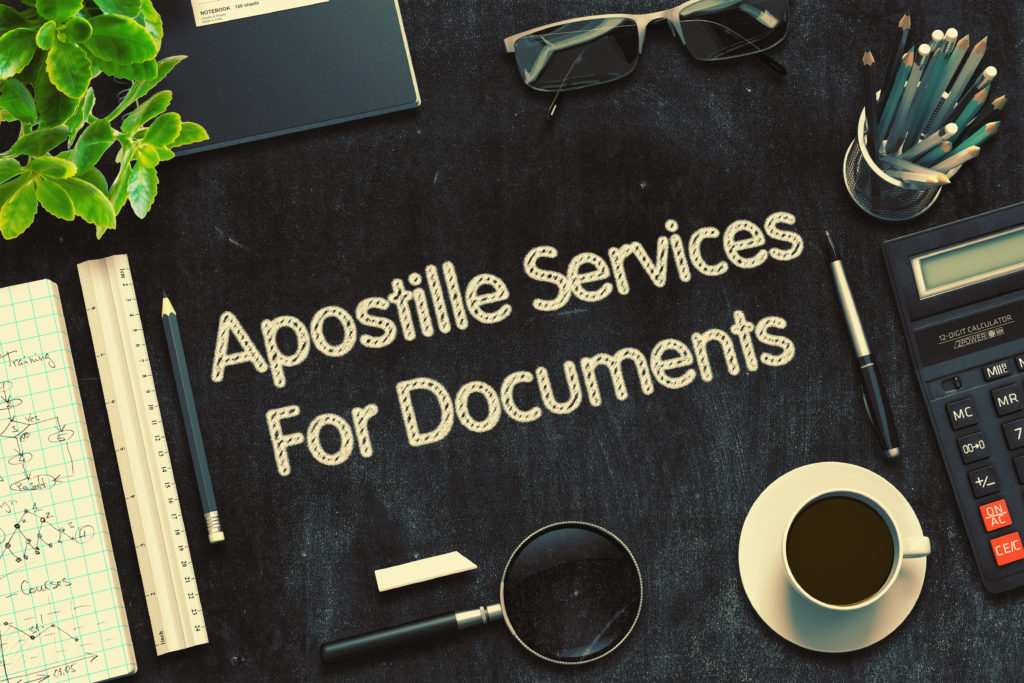The services of a notary date back to the late 1400s. Those first few hundred years were full of learning curves and question marks. Fortunately, in 1957 The National Notary Association was founded to help turn those question marks into periods. In this article, we are going to teach you everything you need to know about The National Notary Association.
What is a Notary?
We cannot properly discuss The National Notary Association without first knowing what a notary is. If you are unfamiliar with the term, a notary is an official representative of the secretary of state. The services of a notary, while simple, are incredibly important in actively preventing fraud.
Specifically, a notary acts as an unbias witness to the signing of documents of great importance. A notary confirms the identity of the signers, as well as their willingness to sign the document in question. Furthermore, notaries will ensure that each signing party fully understands the document in which they are signing. However, a notary is not to be confused with an attorney. Notaries, unlike attorneys, are not allowed to give legal advice pertaining to the document that they are notarizing.
What is the National Notary Association?
The National Notary Association, or “NNA”, was founded in the late 1950s as America’s premier resource for notaries. Prior to the forming of the NNA, there were no clear guidelines for notaries across the country. Considering notary laws vary from state to state, the forming of The National Notary Association was vital in helping notaries to learn and practice the unique laws of their state. Better yet, the NNA provides the training and tools essential to a successful, fraud-free notary practice. According to the website, www.nationalnotary.org, the NNA strives to achieve five essential goals:
- Comply with state-specific best practices and notary laws
- Avoid liability at the expense of both the notary and the public they serve
- Limit company and signer risk in all notarial acts
- Achieve optimal professional excellence
- Expand income and career opportunities to current and aspiring notaries
The National Notary Association is America’s largest official resource for all things related to becoming and being, a certified notary public.
The National Notary Association and Notary Law
Furthermore, since the founding of the NNA over fifty years ago, they have also played an important role in continually updating relevant notary laws. In fact, state officials have historically sought out the aid of the NNA to modernize their state notary laws.
In 1973, The National Notary Association worked closely with Yale Law School to publics the Uniform Notary Act. The NNA evolved with the times and updated the UNA in 1984, 2002, and finally in 2010 changing it to the Model Notary Act. Currently, over 40 U.S. states have personally enacted pieces of the MNA into their own laws.
Furthermore, in 1998 the NNA published the Notary Public Code of Professional Responsibility. To this day, this literature is nationally recognized as the premier ethical code for notaries everywhere.
Model Notary Act
An esteemed panel of law professors, secretaries of state, mortgage banking professionals, technology experts, and government officials worked together to draft what we now refer to as the Model Notary Act (MNA). As previously mentioned, the MNA was originally called the Uniform Notary Act in its first draft in 1973. Since then, the MNA has evolved with the times to better inform state notary practices.
Should you feel inspired to read the full 162-page document, the NNA provides the full Model Notary Act document online.
Notary Public Code of Professional Responsibility
A previously stated, the NNA published the Notary Public Code of Professional Responsibility in the late 1990s. For over twenty years, this document has been the cornerstone of notary ethics. The responsibilities of a notary are high and require integrity and strong courage of convictions. The Code serves the following functions:
- Fostering Confidence – Adhering to the Code inspires confidence that a notary is practicing and upholding the principles and ethics of the Notary office, and the secretary of state
- Cultivating Respect – When notaries follow the Code, they encourage and inspire respect on a national, as well as an international, level
- Inspiring Postive Change – As the MNA illustrates, it is paramount that the notary laws change with the times. The Code helps ground these inevitable changes with a vital moral imperative
- Reducing Fraud – When notaries actively strive to follow the Code, it vastly reduces the risk of fraud. Therefore, eliminating time-staking and expensive litigation that comes with fraudulent notarizations
- Educating Non-Notaries – The Code is a useful tool in explaining the role, and importance, of a notary
You can read the Notary Public Code of Professional Responsibility in full online, courtesy of none other than The National Notary Association.
Notary Event of the Year
For over forty years the NNA has hosted the “Notary Event of the Year”. True to its name, this annual conference is the premier event for notaries from all over the country to come together. Held in a different city every year, this conference is designed to provide unparalleled education and networking opportunity for notaries everywhere.
Furthermore, it is at the Notary Event of the Year that the prestigious Notary of the Year award is given. The Notary of the Year award is an annual award given to an exemplary notary who:
- Is a beacon of professional and ethical notary conduct
- Actively engages in their community
- Mentors fellow or aspiring notaries
- Speaks publically to positively promote the office of the notary
- Forges the path for innovation and advancement in the notary world
- Donates notary services to those who struggle to afford it
- Engages actively in changing notary legislation with the times
Currently, the next event will take place in Scottsdale, Arizona in June of 2020. Keep an eye out for event updates about the Notary Event of the Year on the NNA website.
How to Become a Notary
The NNA is a vast pool of knowledge for established notaries all over America. Better yet, The National Notary Association is a pivotal tool for those looking to become a notary. The services of a notary are in constant demand. Becoming a notary is a relatively quick and easy process for those looking for an additional source of income. Rules and requirements for aspiring notaries vary greatly from state to state. Fortunately, the NNA is the go-to resource for navigating the specific needs of your state. In general, there are a few universal steps to becoming a notary nationwide. Read on to find out what they are!
Steps to Become a Notary
Nationwide, the procedure to become a notary is as follows:
- Meet your state-specific qualifications
- Complete and submit a notary application
- Pay the application fee
- Complete state-specific notary training*
- Take, and pass, a state-mandated exam*
- Provide fingerprints and pass a background check*
- Receive your notary commission certificate from your state
- Procure a surety bond*
- File your commission certificate (and surety bond*) with your local secretary of state office
- Purchase the necessary notary supplies
Fields marked with a * vary depending on your state of commission. Below we are going to dive deeper into each of the above steps.
1. Do I Qualify to Become a Notary?
First and foremost, in order to become a practicing notary, you must meet a few qualifications. Generally speaking, there are three main qualifications:
- You must be over the age of 18
- Notary applicant must hold no criminal record
- You must be a legal resident of the state in which you are applying for a notary commission
The above list is true of all states. However, each individual state has the right to dictate additional requirements. For example, the state of New York requires that you hold basic proof of primary education (i.e. a high school diploma or G.E.D.).
2. Submitting a Notary Application
Every state will have a unique application to become a notary. You can usually find the appropriate application online. First, find out who regulates notaries in your state. Overarchingly, the Secretary of State’s office is the regulating authority for notaries. However, some states use the county clerk’s office or another local governing body. Whoever regulates notaries in your state should provide state-specific instructions, as well as an application to fill out.
3. Notary Application Fees
While becoming a notary is a relatively inexpensive process, it does involve a few vital upfront costs. One of these costs is the fee you must pay to submit your application. Some states call this an “application fee” or a “filing fee”. Naturally, this amount varies depending on your state in which you are applying. Texas, for example, only charges a $21 filing fee. New York, on the other hand, charges a $60 application fee.
4. Notary Training
If you are looking to acquire a marketable skill, with very little initial time or fiscal commitment, becoming a notary may be perfect for you. Most notary training courses cost less than $200 and take between 3-6 hours to complete. Not a bad deal compared to years of costly college courses.
Furthermore, only ten states even require mandatory training in order to become a notary. However, the other forty states highly encourage you to voluntarily complete a basic notary training course. Considering the legal weight involved with being a notary, it is really in your best interest to invest in training.
5. The Notary Exam
Only 20% of U.S. states require notary applicants to pass a state-approved notary exam. Those states are California*, Utah, North Carolina*, Colorado*, Montana*, Louisiana, Maine, New York, Nebraska, and Oregon*. Interestingly enough, of those ten states, only the five with marked with a * require training as well. To reiterate, whether or not your state requires training, you should take a state-approved notary training course.
If your state requires a test, the notary exam is an hour long, multiple choice, closed book test. With the completion of a training course, the test should be relatively easy to pass with flying colors.
6. Background Check
The aforementioned states that require applicants to pass an exam, also screen applicants via a background check. At the end of your exam, the test proctor will collect your fingerprints and some basic information in order to run a background check on you. This further proves that you are free and clear of criminal history.
Conversely, most states do not require an actual background check to become a notary. However, if you are looking to advance your notary career to the level of a signing agent, a background check is mandatory. More on signing agents later in this article.
7. Notary Commission
You have seen the word “commission” referred to many times in this article. To clarify, a notary commission represents a notary’s certification for the job. Therefore, proving a notary has met all of the necessary guidelines to notarize documents in their specific state. Furthermore, notary commissions are finite. Most states notary commissions are valid for a period of four years before expiration. However, some states last as long as ten years. Once a notary’s commission expires, they must re-apply and re-qualify to legally provide notary services.
8. Surety Bonds
Most states require notaries to acquire a surety bond. A notary surety bond protects both the state and the public from financial harm. Purchasing a notary bond is a promise that you will do everything your power to serve your notary duties ethically. However, in the event that you accidentally make an error in a notarization, a surety bond will protect consumers.
Surety bonds can range in value from $500-$25,000. Although, most states require between $5,000-$10,000 worth of coverage. For example, Texas requires notaries to procure a surety bond worth $10,000 before they can legally notarize documents. A bond of this value costs $75 to acquire in the state of Texas.
Errors and Omissions Insurance
To be clear, a surety bond protects the consumer, aka the signer. Therefore, you, as the notary, are still liable for errors made in any notarizations in which you are involved. This is true in the case of errors made by you, or others involved. Consequently, it is essential that you protect yourself from liability with errors and omissions insurance.
Though not required by any U.S. states, it is in your best interest to acquire notary insurance. Notary laws are written to protect the public, hence the requirement of bonds. However, though not required, errors and omissions insurance is a smart move for any savvy notary.
Benefits of Errors and Omissions Insurance
It today’s society, it is entirely common for people to jump at the first chance to sue someone. Notaries are typically involved in the signing of documents of great fiscal responsibility. This puts notaries in a particularly vulnerable spot in terms of liability.
With Errors and Omissions Insurance, you will be covered in the event a lawsuit is filed against you. Your policy, within the constraints of the pre-determined limit, will cover the costs of lawsuits and claims made against you. This includes damages accrued from the inciting party, as well as court costs, and attorney fees associated with the lawsuit.
It is important to understand that even if the claim made against you is not valid, you will still have to pay for a legal defense to clear your name. Without this valuable coverage, you will be saddled with growing legal fees purely out-of-pocket.
9. File your Paperwork
As previously mentioned, most states notaries are regulated by the local Secretary of State’s office. Once you have completed your application, necessary training, and procured your surety bond, you will need to file the necessary paperwork with the appropriate governing body. Whether that is the Secretary of State or your local county clerk’s office.
10. Notary Supplies
Every practicing notary requires certain tools to notarized documents. Requirements vary by state, however, there are three essential items every notary should have:
- Notary Stamp – A notary’s unique stamp, or seal, is essential to complete a proper notarization. These stamps vary in appearance but generally bear at least three pieces of information: the notary’s name, state of commission, and date of commission expiration
- Journal – This journal is more specific than your run-of-the-mill daily journal. In fact, a notary journal specifically outlines the details of notarizations performed. This written record helps keep track of completed notarizations, as well as verify and defend past notarizations in the event of legal dispute
- Notary Certificates – This document is where the notary themselves signs and stamps the document. There are different types of notary certificates, depending on the type of notarization performed. Be sure to check with your local offices about the necessary certificates
Once you have successfully completed the above steps, you are ready to become a notary! To ensure that you meet all of your state-specific requirements check the NNA database for how to become a notary by state.
Loan Signing Agent vs. Notary Public
Let’s take a moment to discuss the differences between a notary and a loan signing agent. Interestingly enough, all loan signing agents must be notaries first. However, not all notaries are loan signing agents. A loan signing agent, also referred to as a notary signing agent, is a more specialized and trained notary. Specifically, notary signing agents lend to documents involving loans and mortgages. These type of transactions require additional paperwork and training on the behalf of the notary.
Many people choose to become a notary signing agent as a form of a promotion. Notary signing agents tend to make more money than regular notaries and are in constant demand. The National Notary Association has a helpful guide on how to become a notary signing agent if you are interested.
Help! I Need to Get a Document Notarized
Furthermore, you do not need to be a notary to reap the benefits of the NNA. Undoubtedly, at one point or another in your life, you will need to get a document notarized. When that time comes, The National Notary Association has countless resources on how to prepare for a notarization. A few best practices:
- Save the Signing – As tempting as it is, resist the urge to sign your document before your notarization. While not legally required nationwide, you should always sign your document in the physical presence of a notary
- Bring the Party – You can save valuable time and money if all required signers are present at the time of notarization. Legally, you can have the signers sign at different times, even get the signatures notarized by different notaries. However, this takes significantly longer and requires more notary fees
- Bring Proper Photo Identification – An essential element of a proper notarization is the identification of the signer(s). Universally, a valid passport or driver’s license are the most widely accepted forms of photo identification
Be sure to check with your local notary about individual requirements for your state and type of document.
Find a Notary
With over 4 million notaries in the United States alone, locating their services should be a breeze. A few common places to find a notary are:
- Banks
- Public Libraries
- Car dealerships
- Real estate offices
- Insurance offices
- Some police stations
- Local courthouses or county clerk offices
- Certain mailbox stores, such as UPS
The National Notary Association also provides helpful resources regarding how to find a notary near you. Naturally, pricing and availability vary widely depending on your location. Always call ahead to make an appointment and get a quote. Better yet, if you live in a bustling metropolis, you can likely take advantage of the services of a mobile notary. These notary professionals will come straight to your doorstep and notarize your documents in the comfort of your own home or office.
The National Notary Association: In Summary
Since its founding in 1957, The National Notary Association has helped thousands of notaries around the country. Whether you have been a notary for decades, or are just starting out, the NNA is an invaluable wealth of information. Since notary rules and regulations vary widely across state lines, it is beyond helpful to have a resource like the NNA to clarify specific best-practices. If you are notary, consider joining The National Notary Association today.
Sources
https://www.nationalnotary.org/
https://www.nationalnotary.org/about-the-nna/mission-and-history
https://www.nationalnotary.org/signing-agent/nsa
https://www.notarylearningcenter.com/nsa_screen.html
https://www.nationalnotary.org/resources-for/public/find-a-notary
https://www.nationalnotary.org/resources-for/public/how-to-prepare-for-notarization
https://www.nationalnotary.org/support/faq/insurance
https://www.nationalnotary.org/support/errors-and-omissions-insurance/notary-bond-faqs
https://www.nationalnotary.org/knowledge-center/about-notaries/how-to-become-a-notary-public
https://www.nationalnotary.org/knowledge-center/reference-library/model-notary-act
https://www.nationalnotary.org/file%20library/nna/reference-library/2010_model_notary_act.pdf




